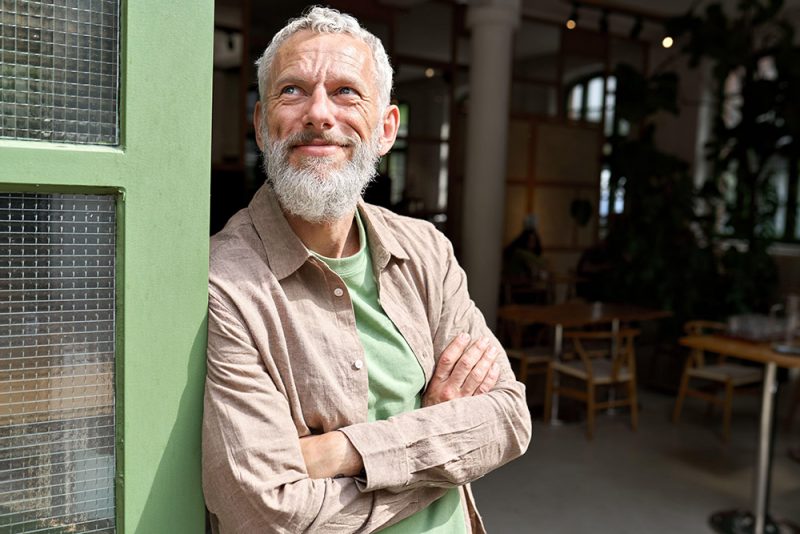Eddie’s a longstanding friend of mine. I’ve always admired his positivity and the almost effortless way he seems to glide through life. He’s also very intelligent: he knows what he wants and usually gets it.
But when I saw him at a party the other night, Eddie seemed strangely out of sorts. Eddie, it turns out, is worried about retirement. He’s in his early 60s, and he and his wife were hoping he could give up work altogether in the next 12 months. Now he’s not so sure.
“I didn’t expect this,” he told me. “Just when I’m ready to put my feet up, the World is in a mess. Soaring inflation, war in Ukraine, tensions with China, talk of a global recession, never-ending doom over climate change. My portfolio is already down 20%, and I’m sure there is worse to come.”
There is no doubt about it, 2022 has been a very tough year for investors. Falls in both equity and bond markets have taken their toll, and for those, like Eddie, who were expecting to retire in the next two or three years, the current financial market environment is particularly concerning.
So, what’s the best advice for those in Eddie’s situation? Here are three suggestions.
Quit the blame game
As our conversation progressed, it soon became clear that Eddie is beating himself up. He doesn’t use a financial adviser and prefers to manage his own portfolio. He blames himself for failing to see the economic downturn coming, and for not having put all his money in cash.
I sympathise with him. In the past I often berated myself for past investment decisions. But, apart from being very unhelpful, that sort of thinking is also completely irrational.
Eddie’s investment strategy was in fact eminently sensible. He has a globally diversified portfolio, comprised mainly of low-cost managed funds, split between equities and bonds — just the sort of portfolio, in fact, that a good adviser would have recommended.
Although there are bound to be years when returns are negative, the evidence shows us that diversifying, keeping costs low and maintaining the same asset allocation is by far the best approach. And having too much money in cash is a surefire way of missing out on the long-run returns that financial markets provide.
In times like these, its worth remembering that equity markets deliver many more good years than bad. Nobody can accurately predict when the bad ones are going to come, or when the bad period is going to end. So the only surefire way to success, is to commit to being a long-term investor, accepting that this means taking the good with the bad.
Blaming yourself, or your adviser, for “getting it wrong” is a waste of time and energy.
Resist the impulse to act
In crisis situations our evolutionary instincts come to the fore, and economic crises are no different. We tend to feel threatened and want to do something about it. Men in particular tend to have a bias towards action. In my experience, business owners, like Eddie, are also especially inclined to act; after all, a crucial part of building a successful business is responding promptly and decisively to outside threats.
The problem is that market downturns call for cool heads and, in most cases, the best thing to do is precisely nothing. This is hard for actioned biased people.
We have no control over the economy or geopolitical events, and all known information is already reflected in current market prices. Equities and bonds have fallen substantially in value, which means their expected return is higher than it was at the start of the year. So, bailing out now is not a good idea.
Of course, Eddie’s right, the value of his portfolio may well fall further in the weeks and months ahead, in which case the temptation to capitulate will only increase. But the further markets fall, the more costly bailing out is likely to be in the long term.
My fellow blogger, the Dublin-based journalist Alex Moffatt, recently wrote about managing to stay calm throughout the global financial crisis of 2007-08 but then bailing out early in 2011 when the Irish economy looked to be on the brink of collapse. “Selling everything during a severe downturn was undoubtedly a blunder,” says Alex. “Had I kept my nerve and managed to stay disciplined, all the losses would have been recouped, followed by year after year of bumper gains.”
Find a financial planner you can trust
Eddie, as I mentioned, hasn’t used a financial adviser in the past, but the discomfort he’s now experiencing is a very good reason for hiring one.
There are people who can manage without an adviser, and for most of his working life, Eddie has been in that category. He’s bright, inquisitive and self-motivated, and to some extent has enjoyed the challenge of managing his own finances.
But retirement is such a critical life change, and financial issues so integral to it, that, in my view, having an adviser to help you through it is essential. If you’re worried that the market downturn has scuppered your retirement plans, you should definitely speak to one.
I’m not just talking about the markets or investing here. Of course, an adviser can ensure that you’re investing in the most efficient way, and help prevent you making foolish mistakes. But they can also spot things you might not have even thought about; tax issues are a good example.
Most importantly, they can help you plan with confidence. That starts with identifying what you really want to do with the rest of your life, then working out how much you’re going to need, and, finally, devising a plan to ensure that you’re able to meet your goals.

